Filter by
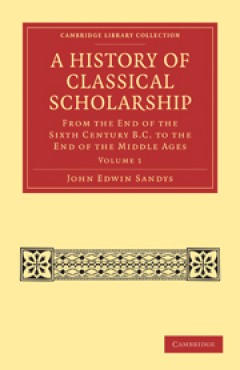
A History of Classical Scholarship
Sir John Edwin Sandys (1844–1922) was a leading Cambridge classicist and a Fellow of St. John's College. His most famous work is this three-volume History of Classical Scholarship, published between 1903 and 1908, which remains the only large-scale work on the subject to span the entire period from the sixth century BCE to the end of the nineteenth century. The history of classical studies wa…
- Edition
- -
- ISBN/ISSN
- 9780511903731
- Collation
- -
- Series Title
- -
- Call Number
- -

A History of American Working-Class Literature
A History of American Working-Class Literature sheds light not only on the lived experience of class but the enormously varied creativity of working-class people throughout the history of what is now the United States. By charting a chronology of working-class experience, as the conditions of work have changed over time, this volume shows how the practice of organizing, economic competition, pl…
- Edition
- -
- ISBN/ISSN
- 9781316216439
- Collation
- -
- Series Title
- -
- Call Number
- -

A History of American Puritan Literature
For generations, scholars have imagined American puritans as religious enthusiasts, fleeing persecution, finding refuge in Massachusetts, and founding 'America'. The puritans have been read as a product of New England and the origin of American exceptionalism. This History challenges the usual understanding of American puritans, offering new ways of reading their history and their literary cult…
- Edition
- -
- ISBN/ISSN
- 9781108878425
- Collation
- -
- Series Title
- -
- Call Number
- -

A History of American Puritan Literature
For generations, scholars have imagined American puritans as religious enthusiasts, fleeing persecution, finding refuge in Massachusetts, and founding 'America'. The puritans have been read as a product of New England and the origin of American exceptionalism. This History challenges the usual understanding of American puritans, offering new ways of reading their history and their literary cult…
- Edition
- -
- ISBN/ISSN
- 9781108878425
- Collation
- -
- Series Title
- -
- Call Number
- -
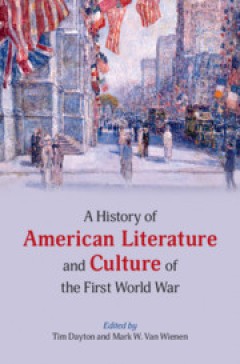
A History of American Literature and Culture of the First World War
In the years of and around the First World War, American poets, fiction writers, and dramatists came to the forefront of the international movement we call Modernism. At the same time a vast amount of non- and anti-Modernist culture was produced, mostly supporting, but also critical of, the US war effort. A History of American Literature and Culture of the First World War explores this fraught …
- Edition
- -
- ISBN/ISSN
- 9781108615433
- Collation
- -
- Series Title
- -
- Call Number
- -
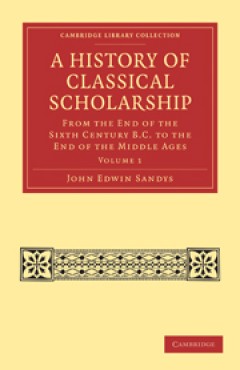
A History of Classical Scholarship
Sir John Edwin Sandys (1844–1922) was a leading Cambridge classicist and a Fellow of St. John's College. His most famous work is this three-volume History of Classical Scholarship, published between 1903 and 1908, which remains the only large-scale work on the subject to span the entire period from the sixth century BCE to the end of the nineteenth century. The history of classical studies wa…
- Edition
- -
- ISBN/ISSN
- 9780511903717
- Collation
- -
- Series Title
- Cambridge Library Collection - Classics
- Call Number
- -
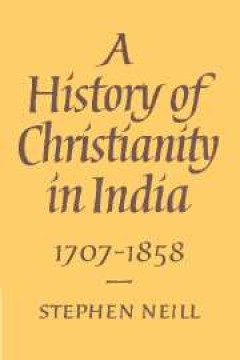
A History of Christianity in India 1707–1858
This book, a sequel to Bishop Neill's A History of Christianity in India: The Beginnings to 1707, traces its subject from the death of Aurunzib to the so-called Indian Mutiny. The history of India since 1498 is of a tremendous confrontation of cultures and religions. Since 1757, the chief part in this confrontation has been played by Britain; and the Christian missionary enterprise, especially …
- Edition
- -
- ISBN/ISSN
- 9780511520563
- Collation
- -
- Series Title
- -
- Call Number
- -
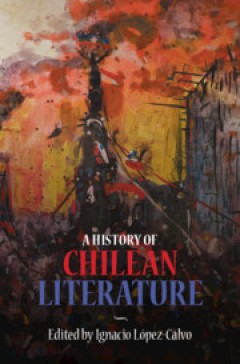
A History of Chilean Literature
This book covers the full range and diversity of Chilean literature from the times of the Spanish conquest to the present. By emphasizing transnational, hemispheric, and global approaches to Chilean literature, it reflects the relevance of themes such as neoliberalism, migration and exile, as well as subfields like ethnic studies, and gender and sexuality studies. It showcases the diversity of …
- Edition
- -
- ISBN/ISSN
- 9781108766616
- Collation
- -
- Series Title
- -
- Call Number
- -
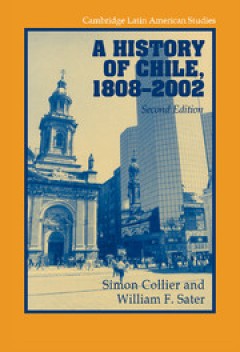
A History of Chile, 1808–2002
A History of Chile chronicles the nation's political, social, and economic evolution from its independence until the early years of the Lagos regime. Employing primary and secondary materials, it explores the growth of Chile's agricultural economy, during which the large landed estates appeared; the nineteenth-century wheat and mining booms; the rise of the nitrate mines; their replacement by c…
- Edition
- -
- ISBN/ISSN
- 9780511991189
- Collation
- -
- Series Title
- Cambridge Latin American Studies
- Call Number
- -
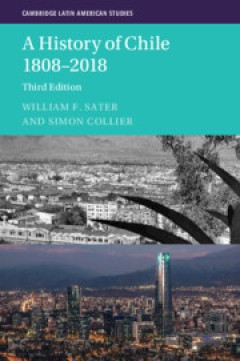
A History of Chile 1808–2018
As Chile has continued to grow and prosper in the twenty-first century, this new edition of the definitive history of the country brings the story of its political, social and cultural development up to date. It describes how Ricardo Lagos and Michelle Bachelet, both highly educated Socialists, modernized the country and integrated new interests into Chilean political life, and how the billiona…
- Edition
- -
- ISBN/ISSN
- 9781009170222
- Collation
- -
- Series Title
- Cambridge Latin American Studies
- Call Number
- -
 Computer Science, Information & General Works
Computer Science, Information & General Works  Philosophy & Psychology
Philosophy & Psychology  Religion
Religion  Social Sciences
Social Sciences  Language
Language  Pure Science
Pure Science  Applied Sciences
Applied Sciences  Art & Recreation
Art & Recreation  Literature
Literature  History & Geography
History & Geography